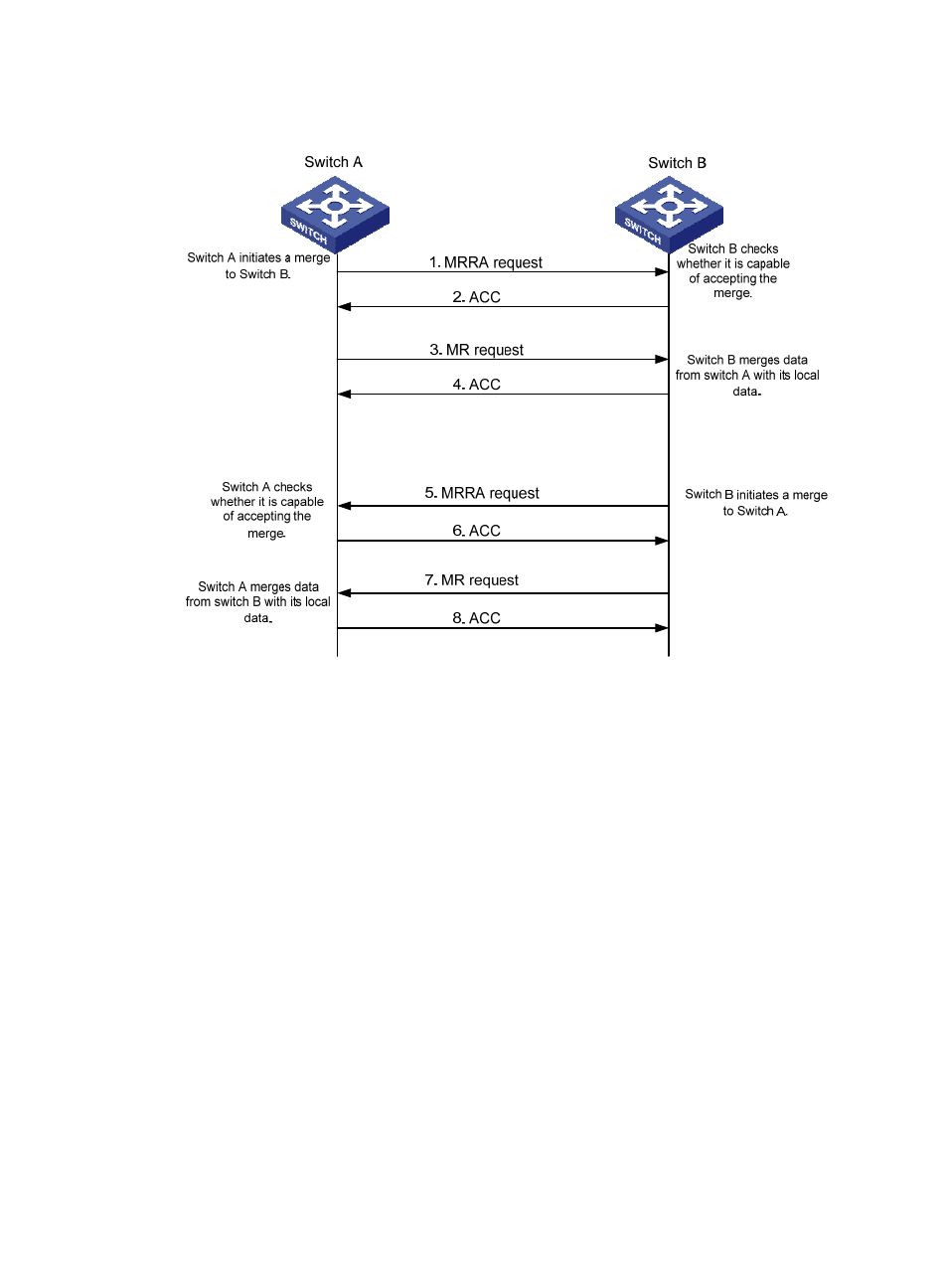Routing table and fib table – H3C Technologies H3C S12500-X Series Switches User Manual
Page 93

84
Figure 27 Zone merge process between two switches
The zone merge process is as follows:
1.
Switch A and Switch B are new neighbors to each other. Suppose that Switch A first initiates a
merge to Switch B:
a.
Switch A sends an MRRA request carrying the size of its data to be merged to Switch B.
b.
After receiving the MRRA request, Switch B determines whether to accept the merge according
to its local data size. If the size of the data to be merged is acceptable, it replies with an ACC
packet. Otherwise, it replies with an RJT packet.
c.
After receiving the ACC packet, Switch A sends an MR request containing its zone data to
Switch B.
d.
After receiving the MR request, Switch B obtains the zone data and merges it with its local zone
data. Then, it replies with an ACC packet for a successful merge or with an RJT packet
containing the cause of failure for a failed merge.
2.
After the merge process initiated by Switch A is complete, Switch B ends the merge process with
Switch A if its local data is exactly the same as or a subset of that of Switch A. Otherwise, Switch
B initiates a merge process with Switch A, which is similar to that initiated by Switch A to Switch
B as shown in steps 5, 6, 7, and 8 in
3.
After the merge process initiated by Switch A is complete, Switch B synchronizes changes in its
local database arising from the merge to the entire fabric by initiating a merge process to all its
neighbors.
4.
Two 1-way merge processes can ensure data consistency between Switch A and Switch B.
